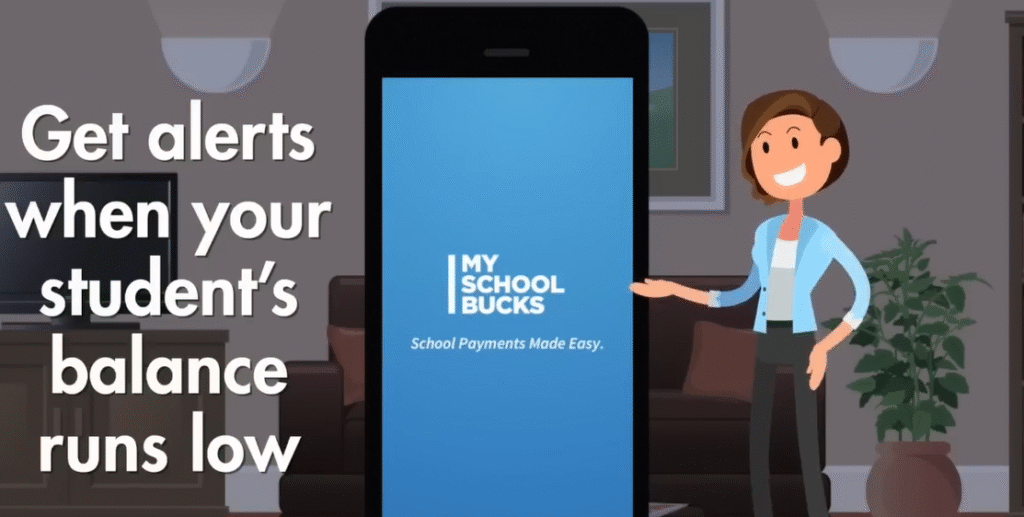For many years, MySchoolBucks was promoted as a quick, digital, and ostensibly time-saving way for parents to connect with their kids’ lunch accounts. However, little “program fees” gradually added up, resulting in a financial burden that wasn’t fully apparent until legal action revealed the truth. For the families involved as well as for digital payment platforms worldwide that make money from comparable microcharges, the recent $18.25 million settlement against Heartland Payment Systems, the company running MySchoolBucks, marks a sea change.
Parents nationwide reported that a fee was added each time they used a credit or debit card to top up their lunch account. This fee was often insignificant, but it was remarkably similar to how ticketing platforms add fees to concert sales. These fees totaled an estimated $192 million during the class period. The magnitude of the number was startling and instructive, showing how minor fees, multiplied by millions of transactions, can deplete household finances without raising red flags for years.
The extent of the settlement is very evident. Anyone who made these top-ups using a credit or debit card between June 2013 and July 2019 is eligible, provided that their most recent qualifying transaction occurred on or after January 1, 2015. This settlement is significantly simpler than others that call for extensive documentation; Heartland’s own transaction records will verify eligibility, so no proof is required up front. Busy parents who might otherwise avoid the process may find this ease of claiming especially helpful.
| Settlement Name | MySchoolBucks Program Fees Class Action Settlement |
|---|---|
| Defendant | Heartland Payment Systems, LLC |
| Settlement Amount | $18,250,000 |
| Case Number | 3:19-cv-724 |
| Court | U.S. District Court for the Middle District of Florida |
| Class Period | June 18, 2013 – July 31, 2019 (last transaction on/after Jan. 1, 2015) |
| Eligibility | Anyone who used a credit/debit card to upload lunch funds via MySchoolBucks in the period above |
| Claim Deadline | August 20, 2025 |
| Opt-Out / Objection Deadline | August 28, 2025 |
| Fairness Hearing | September 25, 2025 |
| Settlement Website | https://www.msbfeesettlement.com/ |
| Contact Email | info@MSBFeeSettlement.com |
| Settlement Administrator | Heartland Settlement Administrator, c/o Eisner Advisory Group LLC, P.O. Box 3413, Baton Rouge, LA 70821 |

Proportionate reimbursement will be given to claimants; those who paid more in program fees will get more in return. The idea is sound: compensation should be connected to actual loss, even though individual payouts will differ. In other settlements, like airline refund cases and retail banking overcharge disputes, this approach has shown remarkable efficacy in guaranteeing fairness.
Legally speaking, the case highlights the expanding function of class actions as a consumer protection measure. Reputable law firms Varnell & Warwick P.A. and Lieff Cabraser Heimann & Bernstein LLP represented the plaintiffs, who pushed for terms that would lead to significant refunds. These companies aren’t known for making lowball settlements; their track record of implementing especially creative consumer protection tactics gave negotiations more clout and probably resulted in a higher amount.
It is impossible for parents to overlook the emotional component. After all, lunch money is about more than just a transaction; it’s about a child’s daily routine, care, and nourishment. It felt like a betrayal of confidence to have to pay more, discreetly, and repeatedly, for something so basic. As a result, the settlement represents both monetary compensation and a symbolic return to justice.
This lawsuit aligns well with the increasing scrutiny of so-called “junk fees” in the context of contemporary digital services. This case supports a consumer-driven demand for transparency, much like the public outcry against airline baggage fees and hotel resort fees. Even well-known cultural personalities have capitalized on the general annoyance that drives incidents such as these, from musicians protesting ticketing surcharges to late-night hosts making light of hidden fees.
The impact on the industry as a whole might be substantial. School districts might start paying closer attention to their vendor contracts and demand clauses that prohibit hidden costs. In order to avoid the PR and legal issues that come with ambiguity, payment processors may shift toward fee structures that are extremely effective but completely transparent about costs.
Naturally, Heartland made a calculated decision to reach a settlement without acknowledging any wrongdoing. They greatly decreased the chance of long-term harm to their reputation by avoiding trial, which is a strategy many businesses use when confronted with accusations that could have far-reaching effects. While consumers obtain some justice without having to endure years of legal wrangling, the settlement gives them the ability to steer the narrative and concentrate on operations.
The online response has been quick, with Facebook groups and parenting forums discussing possible payouts and sharing the claim link. The procedure takes less than five minutes, and participation is very dependable because there is no paperwork involved. Compared to other settlements where claim forms seem purposefully created to irritate the filer, this is a welcome change.
The MySchoolBucks case is set to serve as a precedent for future legal challenges to hidden fee structures as the fairness hearing on September 25 draws near. It has already sparked discussions about the morality of digital payment services for government agencies and may lead to more lawsuits in fields where the cost-convenience ratio is still up for debate.
Strong participation in the settlement could have an impact on any service where additional fees are concealed in fine print, not just platforms related to education. The conclusion is straightforward but impactful: transparency is not only a good practice but also a business requirement. Businesses that embrace clarity will probably end up with a better reputation with the public in the long run and avoid the expensive route that Heartland just took.

